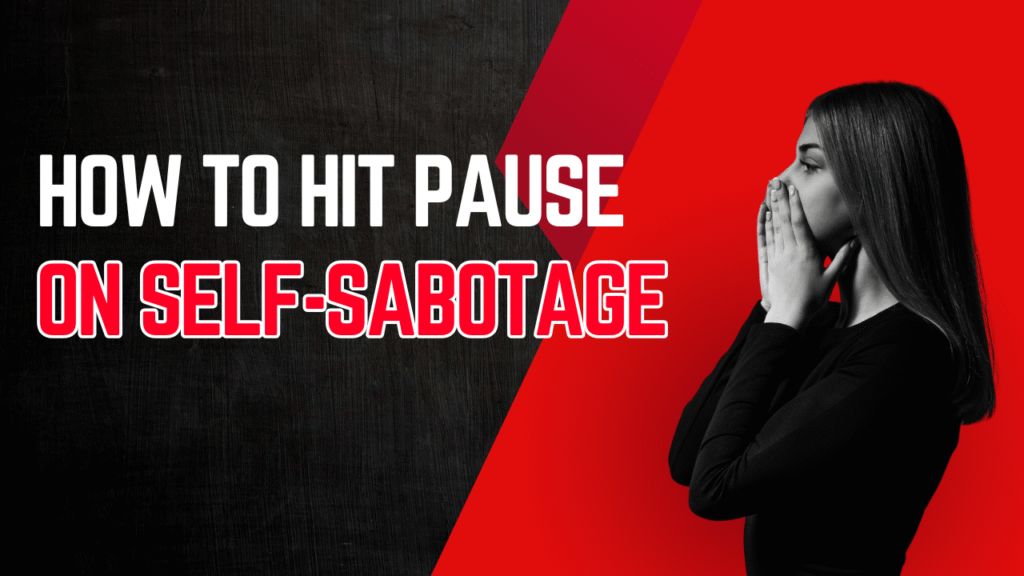Let’s be honest — being grouchy feels justified when life’s throwing lemons, bricks, and the occasional flying toaster at you. Some days, it’s not even one big thing; it’s ten small irritations that stack like bad Jenga moves until the whole mood collapses.
And you don’t mean to let it spill out on other people. You really don’t. But your coworker’s loud chewing feels like a personal attack, the traffic lights seem to be mocking you, and the sound of your neighbor’s dog barking? Suddenly, it’s the hill you’re ready to die on.
I get it. Being human means your patience has limits. But here’s the tricky part: living in a constant low-grade grump doesn’t just sour your day — it becomes the lens you see the world through. And that’s exhausting.
So, let’s get into what’s really going on… and how to shift it without pretending you’re some eternally zen monk floating through life.
First, it’s not “just your personality”
People love to say, “Oh, I’m just naturally grumpy.” That’s not a personality trait. That’s a coping pattern you’ve practiced until it’s automatic. The difference? A trait is something you can’t really change. A pattern? You can interrupt it, reroute it, and eventually replace it.
Sometimes that grumpiness is your body waving a red flag — you’re tired, dehydrated, hungry, overstimulated. Your nervous system’s running on fumes, and your brain is basically saying, “I’m done here.” Other times, it’s old habits and thought loops you’ve never questioned.
If you’ve been reacting this way for years, it can feel like “just the way I am.” It’s not. It’s just the way you’ve been.
Your grouch triggers aren’t random
Ever notice how some days you can roll with stuff, and other days one slightly wrong tone from a friend makes you want to bite their head off? Grouchiness usually has a few repeat offenders.
Here are the big ones:
- Physical strain – Poor sleep, skipped meals, too much caffeine, not enough movement.
- Mental overload – Too many tabs open in your brain. Work deadlines, personal stress, social obligations.
- Sensory overload – Noise, crowds, clutter, bright lights. If your environment feels chaotic, your mood will follow.
- Unspoken resentment – If you’ve been swallowing frustration instead of addressing it, it leaks out sideways in irritability.
It’s worth figuring out your personal “grump triggers” so you can see them coming instead of getting blindsided.
The pause nobody takes but should
Here’s the thing about grouchiness — it’s rarely about the moment you’re in. You’re reacting to a buildup of small annoyances, but the person in front of you only sees the explosion.
Before you snap, take the pause. Literally stop for two seconds and ask yourself: “Am I reacting to this moment, or to my whole day?” Nine times out of ten, it’s the whole day.
This pause gives your brain a second to switch from knee-jerk irritation to conscious choice. Doesn’t mean you’ll suddenly be cheerful — but you might downgrade from “full volcanic eruption” to “light simmer.” And that’s progress.
Don’t confuse venting with fixing
Some people think being grouchy is “just getting it off my chest.” No, that’s venting — and it’s addictive. Venting gives you a quick release, but it trains your brain to look for more reasons to be annoyed so you can vent again. It’s like scratching a mosquito bite. Feels good for a second. Makes the itch worse later.
If you really want to stop being grouchy, you need outlets that don’t feed the fire. Walk around the block. Write down your thoughts (and burn the paper if it helps). Do something with your body — push-ups, dishes, sweeping — anything that channels the tension out instead of pouring it on someone else.
Check your baseline
Here’s the uncomfortable truth: if you live in a near-constant state of irritation, you’ve normalized it. Your baseline mood is already tense, so it takes almost nothing to tip you over.
This is where the unglamorous stuff matters:
- Go to bed earlier than you want to.
- Eat actual food, not just caffeine and carbs.
- Move your body daily, even if it’s a 10-minute walk.
- Drink water like you mean it.
You can’t out-think a body that’s running on fumes.
Learn the art of “let them”
Someone cuts you off in traffic? Let them.
Coworker’s got that passive-aggressive email tone again? Let them.
Neighbor parks too close to your driveway? Let them.
Not because you’re letting people “win” — but because you’re no longer volunteering to fight battles that have zero payout. Every time you engage with nonsense, you give it a little piece of your energy. That’s like handing out slices of your own sanity for free.
When you master the art of letting other people be exactly as they are — annoying quirks and all — your grouch levels drop like a rock.
Watch the “always” and “never” trap
Ever catch yourself saying stuff like, “This always happens to me,” or “People never listen”? That’s your brain reinforcing a negative identity. You’re telling yourself a story where you’re permanently the victim of life’s little irritations.
The fix? Catch yourself and reframe it. “This often happens” is more accurate — and less fatalistic. “Some people don’t listen” is true — but not all people. You’d be surprised how much softer life feels when you stop using absolutes to narrate it.
Acknowledge the wins
Here’s something grouchy people rarely do: notice when things go right. You could have fifty smooth moments in a day and your brain will still highlight the one that annoyed you.
Train yourself to call out the wins. The green light you hit. The unexpected text from a friend. The stranger who held the door. Doesn’t mean you have to become a wide-eyed optimist — but balancing the mental books matters.
Talk to yourself like you talk to your favorite person
If your best friend called and said, “I’m having one of those days where I hate everyone,” you’d probably respond with some kindness, maybe a joke, and a plan to help them decompress.
Why not give yourself the same treatment? Instead of “Ugh, I’m such a jerk today,” try “Okay, I’m cranky — what do I need right now?” That shift keeps you from spiraling into shame, which only fuels the grouch.
Build a release valve into your day
Don’t wait until you’re at boiling point. Schedule little pressure releases. That could be a mid-morning walk, five minutes of music you actually like, or even a quick call to someone who gets you.
If your life is nothing but demands and no decompression, grouchiness is inevitable. The more you plan micro-breaks, the less you’ll feel like you’re one inconvenience away from losing it.
The hard but freeing part
Sometimes, grouchiness is just a cover for deeper stuff — burnout, resentment, fear, or feeling unappreciated. That’s harder to admit because fixing it means changes that go beyond drinking more water or getting better sleep.
If you suspect that’s the case, be brave enough to sit with it. Ask: “What’s this irritability really about?” It’s not a fun question. But answering it can stop you from trying to fix the wrong thing.
And here’s the kicker — when you work on the root cause, you don’t just become less grouchy. You become lighter. Easier to be around. Easier for yourself to live with.
Anyway, there’s no medal for being the crankiest person in the room. And nobody’s writing a song called Ode to the Grouch Who Yelled at the Barista. You don’t have to fake cheerfulness, but you also don’t have to keep letting irritation set the tone.
So maybe start with a pause today. A glass of water. One battle you choose to let go of.
See if the world feels a little less itchy. And if it does… what might you do with all that extra space in your head?


